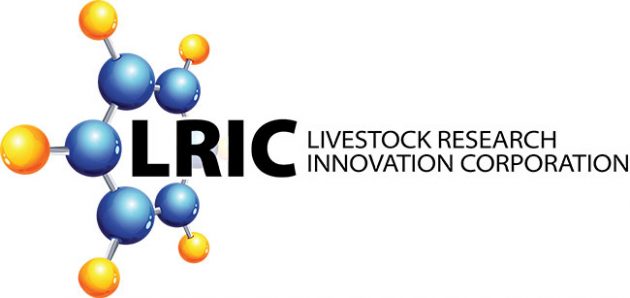
LRIC update: New educational series tackles big issues
By Lilian Schaer
Features Emerging TrendsLRIC's new white paper and webinar series tackles livestock challenges.
 Dr. Rene van Acker, dean of the Ontario Agricultural College, kicked off the Horizon Series webinars in February with a presentation on regenerative agriculture.
Dr. Rene van Acker, dean of the Ontario Agricultural College, kicked off the Horizon Series webinars in February with a presentation on regenerative agriculture.
U.S. writer and futurist Alvin Toffler is well known for having declared that it’s important to think about big things while doing small things so that small things go in the right direction.
LRIC CEO Mike McMorris knows first-hand that there’s no shortage of small – but not unimportant – things facing the livestock and poultry sector daily. But he believes it’s also important for someone to keep the big picture in mind.
“The big things facing livestock and poultry today are more than any single organization can tackle on its own. And even if they could, there is a shared vulnerability which means that all sectors need to move forward, or all are at risk.,” McMorris says. “More than ever, consumers see livestock as livestock and don’t differentiate much between the livestock and poultry species, so it’s important that the industry takes a collective approach to solutions.”
Those big issues include things like the impacts of livestock and poultry production on climate change and soil health, antimicrobial resistance (taking a new One Health approach), transmissible disease and zoonoses, genetics and “animal-free” milk, eggs and meat.
According to McMorris, a collective approach to many of the common aspects of livestock and poultry production is one reason LRIC was originally formed. And it was the catalyst for one of the corporation’s latest initiatives, a collection of white papers complemented by monthly webinars called the Horizon Series.
“As an organization, our vision is to create a robust future for the farmed animal value chain, and part of that is keeping an eye on both opportunities and threats that may be coming at the poultry and livestock sector,” he says.
“All of these topics mean different things to different people, and while there is a lot of information out there about each of them, not all of it is credible, and a lot of it certainly isn’t balanced,” he adds, citing greenhouse gas emissions as a leading example where fingers are often unfairly pointed at livestock and poultry production.
LRIC’s goal is to provide people with an easy starting point for credible, accurate Canadian information on topics relevant to the sector. Each white paper is researched and written by LRIC’s team and is then reviewed by a credible subject matter expert who serves in the role of contributing editor.
That subject matter expert then presents the issue in a webinar and takes part in a question and answer session with participants. Webinars are recorded and posted on the LRIC website along with the white papers.
The series started in February with regenerative agriculture and Dr. Rene van Acker, Dean of the Ontario Agricultural College. Dr. Claudia Wagner-Riddle and Dr. Susantha Jayasundara of the Department of Environmental Sciences at Guelph focused on livestock and greenhouse gases and Jean Szkotnicki, who served 29 years as the president of the Canadian Animal Health Institute before retiring, led the antimicrobial use and resistance in livestock topic.
Most recently, Heather Murphy, associate professor in the Department of Pathobiology at the Ontario Veterinary College, addressed the topic of One Health.
Upcoming papers and webinars will look at genomics, getting research into use by industry, livestock and water use, and the future of vaccines, including mRNA – a new platform that many Canadians have heard of recently as it’s the basis of both the Pfizer and Moderna COVID-19 vaccines.
All papers and recordings are available at livestockresearch.ca/white_papers.
This article is provided by Livestock Research Innovation Corporation as part of LRIC’s ongoing efforts to drive innovation in livestock production.
 Livestock Research Innovation Corporation (LRIC) fosters research collaboration and drives innovation in the livestock and poultry industry. Visit www.livestockresearch.ca or follow @LivestockInnov on Twitter.
Livestock Research Innovation Corporation (LRIC) fosters research collaboration and drives innovation in the livestock and poultry industry. Visit www.livestockresearch.ca or follow @LivestockInnov on Twitter.
Print this page